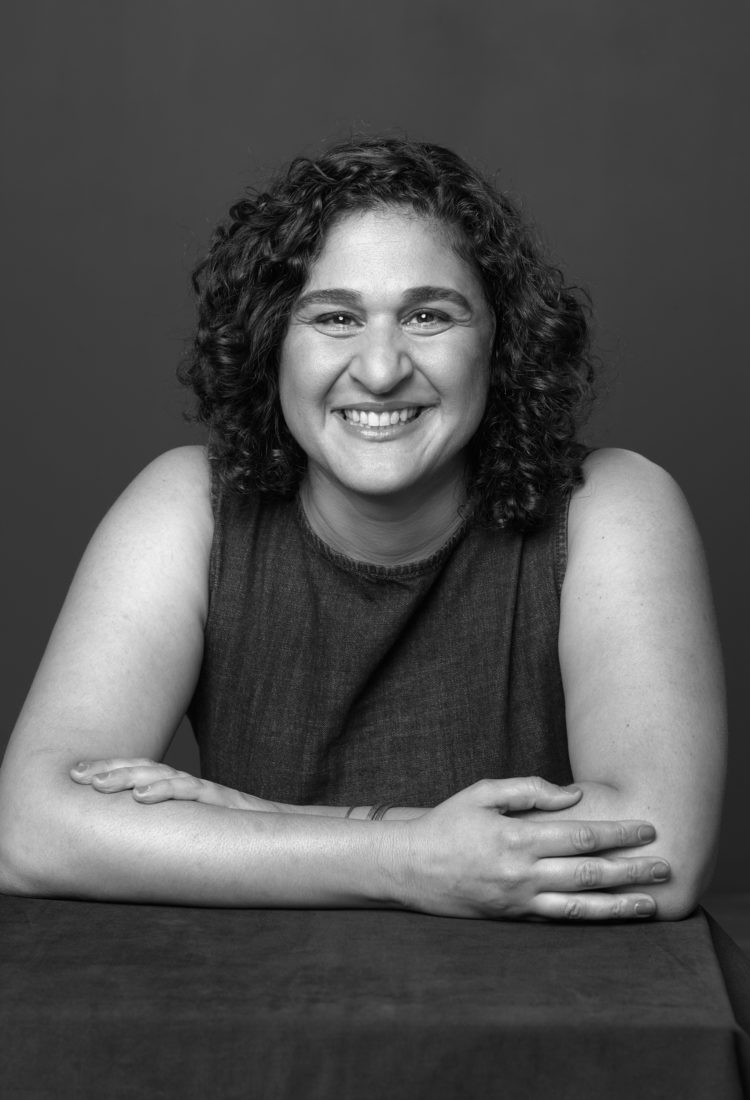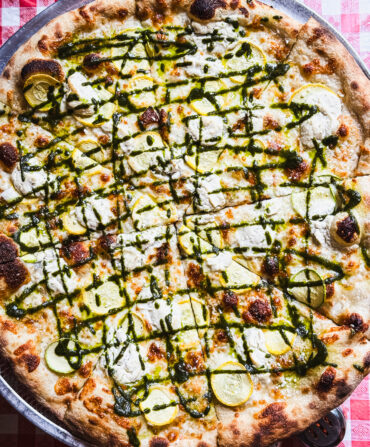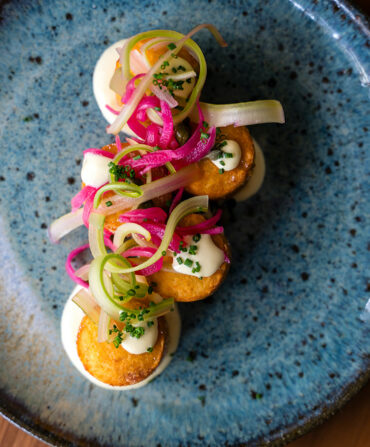This spring, just as pandemic whispers were becoming reality and quarantining began, the mega food star Samin Nosrat, the best-selling, James Beard Award–winning author of the Salt, Fat, Acid, Heat cookbook and the host of a Netflix show of the same name, hacked at the bamboo devouring her Oakland, California, garden.
She was making a little breathing room for the rare heirloom vegetable seeds she ordered from Missouri’s Baker Creek. “I put in so many poppies and ranunculus, and now I’ve got fava beans, tomatoes, and peppers, and then I’m going to build a bean trellis,” she said with a laugh—she’s a generous laugher. “I think I’ve got a gardening bee in my bonnet.”
While the world seemed to shut down over the summer, Nosrat tended her plants, started a podcast about cooking at home, urged disparate corners of the internet to bake a giant lasagna all together, and then watched as many of her travel events were canceled or rescheduled.
One of those events, a trip to Alabama to meet the beloved Birmingham restaurateurs Frank and Pardis Stitt, was rescheduled for this Sunday, September 13, at 4 p.m. central. And although it’s no longer an in-person conversation, the event will go on, live and online through the Alys Stephens Center at the University of Alabama at Birmingham. (The university’s arts organizations collaborated on an enticing lineup of fall speakers, including the chefs Scott Peacock, Kwame Onwauchi, and Chris Hastings—plus a delightful food-and-contemporary-art exhibition, A La Carte.)
We caught up with Nosrat to chat about her favorite cookbooks, the Persian heritage she shares with Pardis Stitt, and what bucket-list Southern foods she can’t wait to try when she finally does get to travel again.
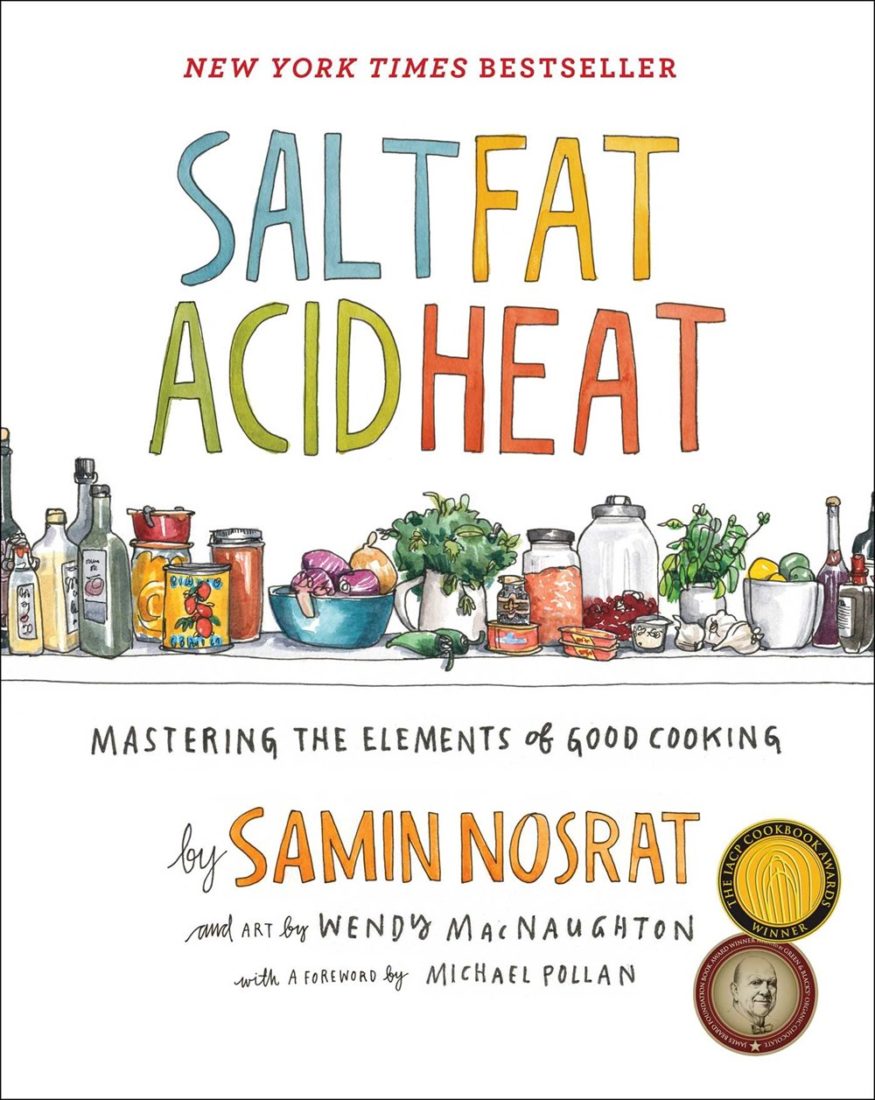
In your cookbook, you share how salt, fat, acid, and heat are what make dishes taste good. What Southern foods hit the balance perfectly?
In my mind, it’s a whole plate of Southern food: slaw, pickles, a flaky biscuit, and fried chicken. Or super-tender pulled pork with crispy bits, South Carolina–style with vinegar sauce. That is so good.
Have you traveled much in the South?
The only time I’ve really been to the South was when I went to the Southern Foodways Alliance symposium in 2013 in Oxford, Mississippi. I loved it. I’ve always been drawn to Southern cooking, and I think part of it is because my mom, besides being obsessed with immersing me and my brother in our own Persian culinary traditions, was a hippie who believed in natural foods and no sugar. When you grow up, you’re into whatever your mom’s not giving you, so if I was lucky, at someone else’s house, I could have macaroni and cheese or this and that. The first time I had cornbread, I was twenty, and I was like, you can put corn in bread? When I first learned about pimento cheese, I was like, okay, this is the most amazing thing. Then I learned what a Lowcountry boil is and I love the idea that you can just dump everything out on a table.
In this upcoming event, you’ll talk with the restaurateurs Frank and Pardis Stitt. What’s your friendship with them like?
I’ve only met Frank one time, at the Southern Foodways symposium, but I know what they mean to Birmingham and the South, and to me, as an Iranian-American kid, to know that Southern fine dining is upheld by this most elegant Iranian lady? It fills my heart with such joy. I also really want to meet [the pastry chef] Dolester Miles. I don’t want to overwhelm her with my exuberance, but the way she bridges her culture and her history, and intermingles it with French technique and her own cooking, she just has an amazing touch. When she won a James Beard Award, I thought, she’s breaking down so many thought barriers about what cooking is worth paying attention to.
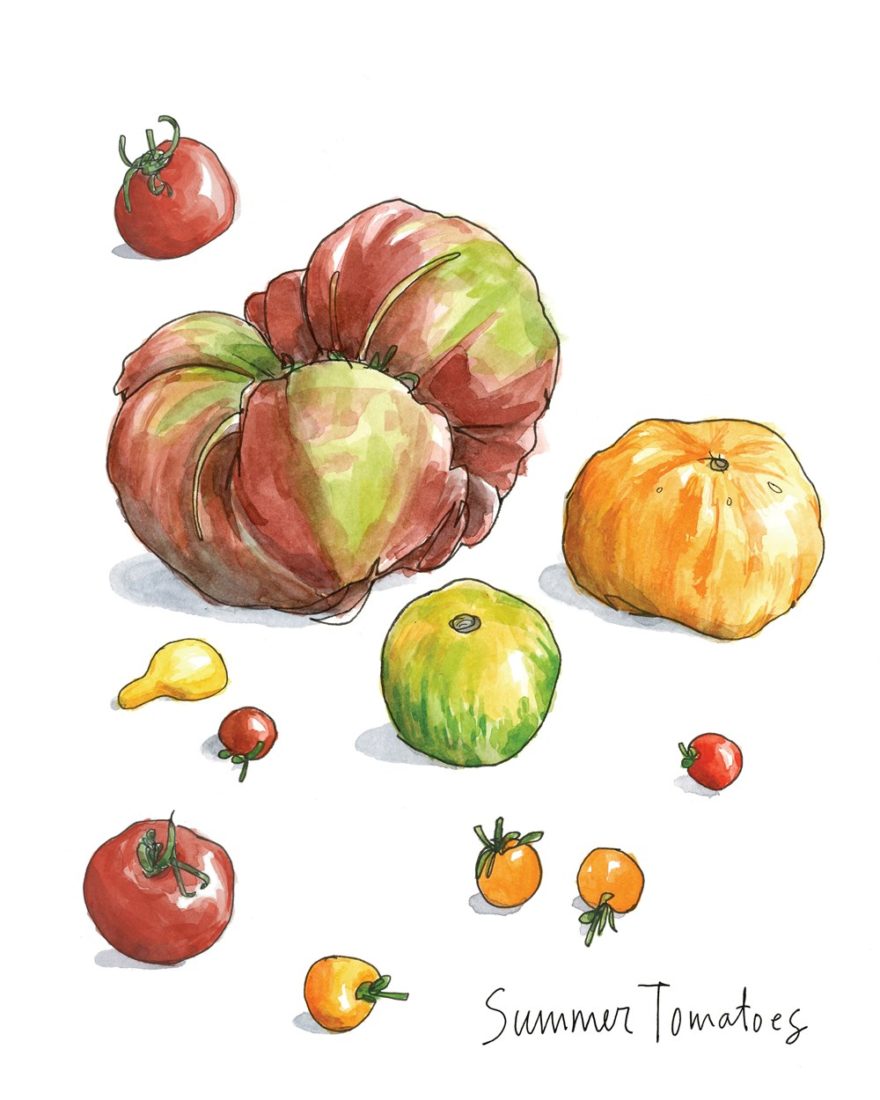
You’ve written about Pardis before, and in your piece, which is partially about your shared Persian/Iranian backgrounds, you explained: “Iranian” refers to nationality and “Persian” to ethnicity, and many Iranian-Americans use the terms interchangeably. What are some connections you see between Southern cooking and the comfort food of your childhood?
One thing, I think, about the food world in general, is there seems to be a shift toward recognizing different backgrounds and culinary traditions. I don’t know for sure if it comes from squeaky wheels, but thank goodness for squeaky wheels and everyone who amplifies them. Southern cooking is the foundation of American cooking in large part, and much of it came over with enslaved people. There are absolutely similarities with Iranian cooking—both foodways come from country cooking, cooking from the land, using what you have, cooking with the season, and eating a lot of rice. Also, there is a rich tradition of pickling in Iran.
You also have that buttermilk chicken recipe in your book that people are obsessed with.
I started that with yogurt, because in Iran, we marinate in yogurt. But yogurt can be expensive, so I had to figure out another way to get that sour milk taste, the lactose, and the tanginess. And buttermilk is less expensive. Then I read in books where Southern grannies have been using buttermilk forever. I didn’t invent anything—and it’s nice when you realize you’re doing something people have been doing since the beginning of time.
What are some of your favorite cookbooks?
I’ve learned a lot from Bryant Terry, about the tradition of veganism that is rooted in different cultures of color. [She looks through the cookbooks in her office.] Oh, I just pulled down Ronni Lundy. Love. Yes. There’s Edna Lewis. I love In Pursuit of Flavor and the Taste of Country Cooking. I love the original Tartine cookbook. I love The Art of Fermentation from a guy who lives on a commune in Tennessee. Sunday Suppers at Lucques, that’s a really wonderful menu cookbook. Obviously, also Harold McGee On Food and Cooking and all Paula Wolfert.
You’re also working on a new cookbook?
In the new book, What to Cook, the idea is, how do you use the limitations of your current situation—sometimes it’s time, it might be money, it might be space, or whatever resources you have in your kitchen, or like, if you’re camping and all you have is fire, or if your oven is full. It’s basically going to be a whole book about dealing with limitations, which is pretty crazy given that people have been trapped inside without as many fresh ingredients.
When travel is easier again, what’s on your Southern food bucket list?
I’ve had my fair of hot chicken, but there’s always room in me for more. In Texas, it would be really awesome to have a Viet-Cajun boil or meal. I would like to try barbecue everywhere. I’m the kind of person who, if you take me to a barbecue place and you have to choose two sides, I’m like, why would I choose? I want all six.
But as much as I love fried chicken and barbecue, I would love to eat the non-glamorous things, like greens with potlikker, and different kinds of beans and rice. Wherever I go and whatever I’m doing, I’m just adding note cards into my flavor filing cabinet. As a non-Southerner, I might have these ideas of what things taste like, but I don’t know.
I want to put a recipe for cornbread in my next book. It’s a wonderful thing; I just woke up and made some for breakfast, and yet I’m afraid to write about it because I feel like there are very strong feelings about cornbread. Maybe what I’ve been eating and making would be a horrible travesty to a true Southerner. And what’s interesting about just turning forty, I hate to admit this—my body is changing. I just can’t eat like I used to, or I’ll be up all night with indigestion. So, I’ve been experimenting with buckwheat, and some gluten-free stuff. There’s this way to make the crumb on the cornbread so light and tender with buckwheat. I’m not from the South, so it’s never going to be traditional, but I’m a voracious eater and I want to make some good cornbread. No, I am never going to be Edna Lewis, so I just have to be who I am.
Find more information and purchase tickets to Samin Nosrat’s event with the Stitts here.


